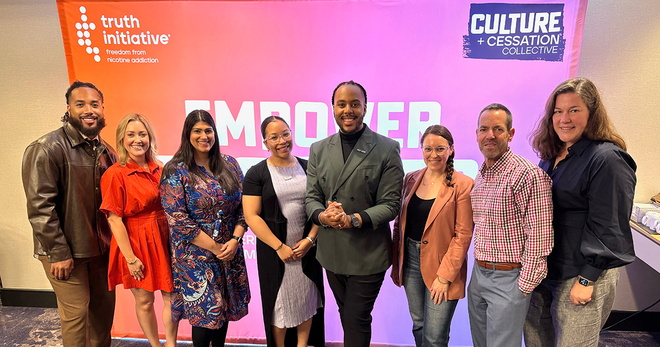It’s time for pharmacies to stop selling tobacco
It sounds like a retail oxymoron: pharmacies selling tobacco products.
CVS and many independent pharmacies have voluntarily eliminated tobacco from their inventories, and more than 150 localities in Massachusetts and California combined have passed laws banning pharmacies from selling tobacco.
Still, 53,566 pharmacies sold tobacco in 2016. That’s a big problem because removing these products from pharmacy shelves saves lives from tobacco-related diseases. Here’s why:
Tobacco-free pharmacies decrease retailer density
High concentrations of stores selling tobacco are associated with higher smoking rates and decreased success in quitting. Retailer density is also higher in low-income and minority communities and is a major contributor to the disproportionate effect tobacco has on these populations.
Cities in Massachusetts and California with tobacco-free pharmacy laws have a retailer density that is three times lower when compared to other cities. Additionally, a study estimated that North Carolina would have more than 1,000 fewer tobacco retailers and would reduce density by nearly 14 percent if the state adopted a similar policy.
Retail marketing is very effective advertising for Big Tobacco
Pharmacies and other tobacco retailers not only sell products; they are the industry’s main marketing outlet.
Virtually all the industry’s $8.5 billion annual marketing expenditure—more than 96 percent of it—goes to marketing in retail environments, including in-store advertisements, discounts and product displays behind check-out counters.
Retail marketing is linked to impulse purchases, an increased likelihood of young people starting to smoke and decreased success for people attempting to quit. About one-third of teenage experimentation with smoking can be directly attributed to tobacco advertising and promotional activities in retail environments.
Public opinion supports banning tobacco from pharmacies
Sixty-six percent of U.S. adults favor a ban on tobacco products in pharmacy stores, including nearly half of smokers, according to a 2014 survey from the U.S. Centers for Disease Control and Prevention.
Signs of support are emerging in other forms. A group of Walgreens shareholders petitioned to the pharmacy’s board of directors to let the shareholders vote on whether to conduct a study surrounding the consequences of continuing to sell tobacco. They want to vote on the matter at the next shareholders meeting at the end of the month, but executives are blocking the vote.
truth® launched a petition aimed at getting youth to tell Walgreens—one of the country’s largest pharmacy chains—that tobacco does not belong on its shelves.
According to the petition: “Deadly products have no place ‘at the corner of happy and healthy,’ and with your signatures, we’ll tell Walgreens that its customers side with the shareholders. Speak up to let Walgreens know: tobacco and pharmacies don’t mix!”
The petition follows truth and DoSomething.org’s campaign, called Take Back the Shelves, that asked young people to submit drawings of items they think belong behind pharmacy checkout counters in place of tobacco products.
What you can do
Our partner organizations Campaign for Tobacco-free Kids and Americans for Nonsmokers' Rights have also launched petitions to call on Walgreens to get rid of tobacco products.
Read and sign those petitions, and spread the message that tobacco products have no place in pharmacies.
It’s time for @Walgreens to end tobacco sales at its pharmacies. Send a message: https://t.co/REFdmrCTRA #walgreens pic.twitter.com/s6DufStpPJ
— Campaign for Tobacco-Free Kids (@TobaccoFreeKids) October 7, 2016
Help us urge Walgreens to stop selling tobacco. Sign the petition today, and tell a friend. https://t.co/zYhmNYvHEZ pic.twitter.com/zknIfVzep1
— ANR (@ANR_Smokefree) September 1, 2016
More in tobacco prevention efforts
Want support quitting? Join EX Program
By clicking JOIN, you agree to the Terms, Text Message Terms and Privacy Policy.
Msg&Data rates may apply; msgs are automated.


